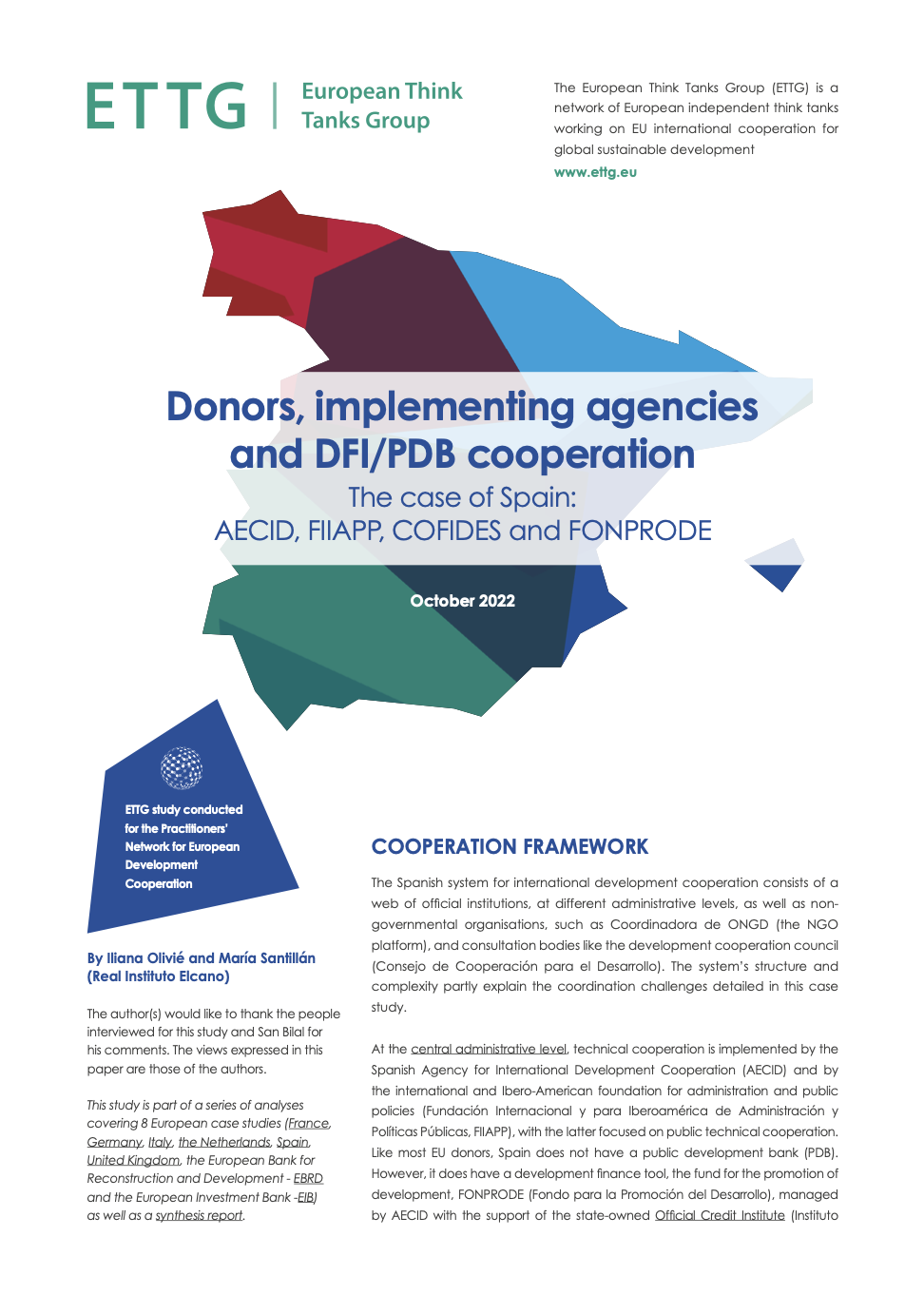
The Spanish system for international development cooperation consists of a web of official institutions, at different administrative levels, as well as non- governmental organisations, such as Coordinadora de ONGD (the NGO platform), and consultation bodies like the development cooperation council (Consejo de Cooperación para el Desarrollo). The system’s structure and complexity partly explain the coordination challenges detailed in this case study.
At the central administrative level, technical cooperation is implemented by the Spanish Agency for International Development Cooperation (AECID) and by the international and Ibero-American foundation for administration and public policies (Fundación Internacional y para Iberoamérica de Administración y Políticas Públicas, FIIAPP), with the latter focused on public technical cooperation. Like most EU donors, Spain does not have a public development bank (PDB). However, it does have a development finance tool, the fund for the promotion of development, FONPRODE (Fondo para la Promoción del Desarrollo), managed by AECID with the support of the state-owned Official Credit Institute (Instituto de Crédito Oficial) and COFIDES, which is a public-private company depending on the Secretary of State for Trade and member of the EDFI Association.
Read the Spanish case study here.
Authors: Iliana Olivié and María Santillán (Elcano)
The author would like to thank the people interviewed for this study and San Bilal for his comments.
ETTG study conducted for the Practitioners’ Network for European Development Cooperation.
This study is part of a series of analyses covering 8 European case studies (Germany, France, the Netherlands, United Kingdom, Spain, Italy, the European Investment Bank -EIB and the European Bank for Reconstruction Development – EBRD) as well as a synthesis report.
Presentation of the analysis report here.
Photo by Sam Williams on Unsplash.
The views are those of the authors and not necessarily those of ETTG.




